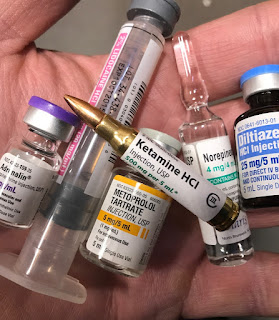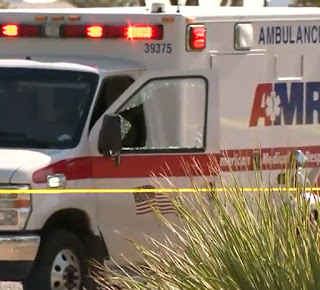Being a Tree
In the movie "Back to the Future," the villain, Biff Tannen, famously butchers a classic simile: "Why don't you make like a tree and get out of here." (If you have not seen this movie, you're a butt-head)
Far less famous, but far more prolific was this quote by Trappist monk and theologian Thomas Merton:
“A tree gives glory to God by being a tree. For in being what God means it to be it is obeying [God]. It “consents,” so to speak..."
Those who know me know that I am neither a religious man nor a Trappist monk. Yet I appreciate wisdom whether it derives from religion or from Peter Griffin, and this quote contains wisdom. It also really applies to our work in the field, especially as we pull together with other providers and other agencies to handle challenging incidents.
When I played college basketball, our team had a thing called a "break pattern". I am still under the impression that this was created by our coach, the intrepid SUNY Legend Dick Bihr, but whoever created it really had a stroke of genius. The premise was that after we obtained a defensive rebound on a missed shot, the entire team broke up the court toward our offensive zone. There were five spots on the floor that needed to be filled as the pattern developed. Four of those five spots were around the three-point line, and the fifth was a post down by the basket. It technically didn't matter which player filed into which spot so long as the spots were all filled… unless you were me. At 6'10" I was not allowed to fill in a spot around the three-point line for very obvious reasons, and so my job was to hustle back and make sure that I got into the low post position. While the ball swung from one corner of the court around the three-point line to the other side, the opportunities for outside shooters to hit opened up, and if not, the dump into the "big guy" was the final option. I never got a chance to fire up a trey.
I should actually disclose at this point that I spent most of my college career sitting on the bench, but the break pattern was a tremendous success. We scored a lot of points off of this and it was because everybody knew what needed to happen and everyone, without ego, put themselves into whatever spot was open.
So let me explain how this obscure religious quotation and my incredibly fascinating stories about Division III college basketball have any relation to EMS.
We generally don't do patient care in a vacuum. There are firefighters, police officers, other paramedics and EMTs, and bystanders at most of our scenes. When we consider the breadth of experience and leadership abilities, it's amazing that every call doesn't explode into a supernova of narcissistic one-upmanship. The potential for a bloody ego battle is always there. Yet most of us find our way clear of that battle. In general, everybody on scene understands the importance of a good outcome for the patient, and while there may occasionally be minor disagreements, we are usually able to work well as a team. When we do work well as a team, it's because everybody understands their role on that particular call.
Sometimes my role as a paramedic is to start an IV. Sometimes it's to intubate a patient. Sometimes it's to decompress a tension pneumothorax. But if I am the second paramedic on scene, my role might be to spike an IV bag or simply apply a cardiac monitor because all the "cool" stuff has already been taken care of. In effect, I am consenting to be a tree. And if I am being a tree, I had better be the best damned tree there is because a patient's treatment depends as much on my competent application of those electrodes as it does on some other person's IV skills.
The push toward "pit crew" methods of handling cardiac arrest patients is "being a tree" in actual practice. Everyone has a job and a responsibility and no person is any more important than the team. If anybody on the crew fails, the whole team fails. But if everyone performs their assigned task without amour propre, all required components get done, and the patient gets the best chance for survival.
Are there individuals on scene who are better equipped to play certain roles? Certainly. Your BLS personnel should not be administering IV medications. The 90 pound explorer/probie may not be able to provide the best chest compressions, but he should have no issue ventilating with BVM. And some jobs like obtaining medical history and grabbing needed equipment require no special skills. Yet those jobs are no less important, and they contribute to a better patient care scenario.
The bottom line is this: as long as the things that need to happen get done, it matters not a bit who does them. Some days you're the tree, some days the squirrel, some days the nut. But there is no arrogance among trees or squirrels or nuts - they just do their jobs.
The best complement a bunch of responders can pay to each other is to say "Man, that call went really smoothly." When you've had the honor of working a "smooth" call, your first action should not be to puff out your chest. It should be to walk up to every person on scene, shake their hand, and congratulate them on a job well-done.There is no room for big heads in medical care. If you don't believe me, watch this video and learn what happens when everyone tries to be in charge and nobody plays the role of "listener.":
So when you get on your next job, play the role you need to. Be who you need to be on that run. Respect every role, and make like a tree - unless your job is to be a rock.


Comments
Post a Comment